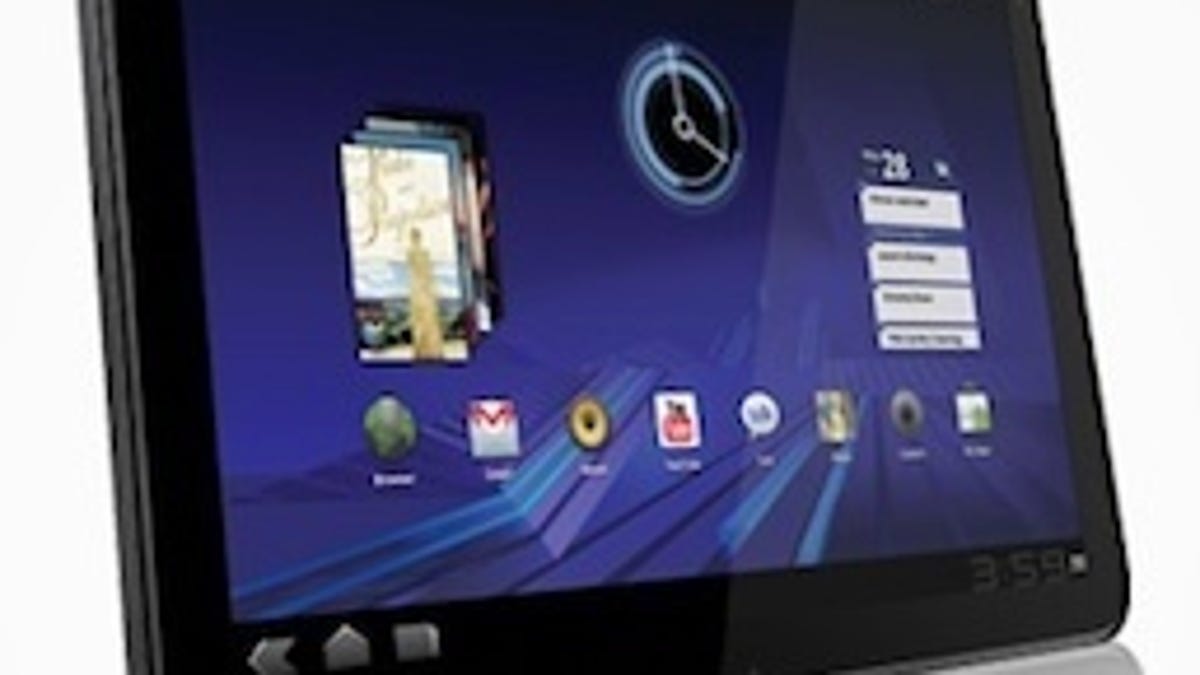Apple slides and blocks Motorola devices over slide-to-unlock
The iPhone maker could enforce a permanent ban ordered by a German court, but only if it's willing to put its money where its mouth is.

Apple has won a key victory in its German patent battle against Motorola Mobility.
Earlier today, a Munich Regional Court offered Apple a permanent injunction against several Motorola mobile products. The court ruled that the devices infringe the iPhone maker's slide-to-unlock gesture patent.
The court was tasked with evaluating three slide-to-unlock gestures, and found that two of them violate Apple's patent. A third, which is used by the Motorola Xoom, was found to not be in violation.
FOSS Patents' Florian Mueller, who was first to report on the story, said that judge Dr. Peter Guntz's permanent injunction will only be enforced at Apple's "own risk," meaning the company would be forced to put up a bond that would be used to pay off any revenue Motorola would lose in the event the ban is overturned by a higher court.
Apple and Motorola have been waging legal warfare on each other for the past . So far, neither firm has been able to gain a definitive upper hand, but that hasn't stopped them from launching new suits. Just last week, in fact, Apple filed a new lawsuit against Motorola in the Southern District of California court, arguing that the mobile firm was in breach of a contract it signed with Qualcomm for use of its patents.
"When Apple makes a promise to license its standards essential patents under Frand terms, Apple will not waiver," the suit read. "Motorola, on the other hand, has pursued an aggressive international campaign of litigation that flies in the face of its promise to license its cellular standards essential patents on Frand terms."
Apple launched its lawsuit on the same day another German judge found that it was not in violation of a 3G/UMTS patent Motorola owns. Motorola had said that Apple's many mobile products are violating the patent, and should be banned from sale.
Motorola was similarly defiant following today's ruling, telling CNET in an e-mailed statement that it has already found a way around the patent, and doesn't anticipate any sales impact.
"Today's ruling in the patent litigation brought by Apple in Munich, Germany, concerns a software feature related to phone unlocking in select Motorola devices sold in Germany," the Motorola spokesperson told CNET. "Motorola has implemented a new design for the feature. Therefore, we expect no impact on current supply or future sales."
Samsung has used a similar strategy in Germany to circumvent bans. The company currently sells the Galaxy Tab 10.1N, a revised version of its Galaxy Tab 10.1, which was found to violate patents. Apple argues that the revision also violates patents it holds, but so far, German courts have not agreed.
Motorola did not say how it plans to legally respond to today's loss, but Mueller, who has been watching all these cases closely, said that it's a "safe assumption" Motorola will appeal. In other words, expect these patent battles to continue indefinitely.
Apple did not immediately respond to CNET's request for comment on today's ruling.
Update 10:17 a.m. PT to include more details.

